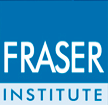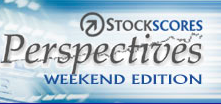Personal Finance
 I opened my first bank account when I was 14 years old. I faithfully squirreled away money that I earned doing odd jobs like babysitting and mowing lawns, a few dollars at a time, with the hopes that it would grow large enough to fund the fancy cars, giant house and amazing vacations I planned to have when I got older. Then came college. I learned pretty quickly that it was far easier to spend money than it was to save money. Even living on ramen noodles and Diet Coke (the diet of college girls of my generation), I watched my bank account dwindle. I wasn’t alone. Figuring out how to balance financial assets with financial pressures turned out to be a challenge.
I opened my first bank account when I was 14 years old. I faithfully squirreled away money that I earned doing odd jobs like babysitting and mowing lawns, a few dollars at a time, with the hopes that it would grow large enough to fund the fancy cars, giant house and amazing vacations I planned to have when I got older. Then came college. I learned pretty quickly that it was far easier to spend money than it was to save money. Even living on ramen noodles and Diet Coke (the diet of college girls of my generation), I watched my bank account dwindle. I wasn’t alone. Figuring out how to balance financial assets with financial pressures turned out to be a challenge.
It’s even worse for millennials today. According to a report from Bank of America/USA TODAY, most millennials claim they weren’t on the receiving end of financial advice growing up. Nearly half (44%) of millennials claim their parents didn’t talk to them about how paying for college might affect their financial future. Nearly three-quarters of millennials say that they grew up without discussing good financial habits as children.
Despite their concerns, millennials do care about managing money and taking control of their finances. Nearly 6 in 10 claim to earn more than they spend (58 percent) while more than half set money aside for savings (56 percent). Still, many believe that it will be more difficult to benefit financially compared to their parents at this age with more than two in five (43 percent) intending to rely on their loved ones for financial help in retirement.
It’s clear that many millennials are wading through financial waters without much in the way of direction – just like I did. With all there is to consider when it comes to finances, wouldn’t it be great if there really was a cheat sheet? What if there was a list of what you absolutely needed to know about money written by folks who have already been forced to make those tough calls? I called in the experts – all part of our Investment Team at Forbes – to offer their absolutely “must know” tips.
In January of 2016, the Investment Team put together a series of primers – from taxes to employee benefits to life insurance and everything in between – the 100 Things You Absolutely Need To Know About Money Before You’re 35. We were blown away by the reception and honored to be asked by readers to put the pieces together in a compilation. We listened. Today, we’re proud to launch our e-book, which includes all 100 things in one easy reference.
You can order your copy from Amazon here.
And yes, our #100 Money Tips are geared towards millennials but that doesn’t mean it’s off limits to the rest of you. I’m guessing that nearly everyone can learn a few new tricks: I know I did.
Want more taxgirl goodness? Pick your poison: follow me on twitter, hang out on Facebook and Google, play on Pinterest or check out my YouTube channel. For cases and tax related docs, visit Scribd.
Amin Rajan discusses investing in the age of financial repression as well as key points for risk mitigation with FRA Co-founder Gordon T. Long. CREATE-Research is a a network of prominent researchers undertaking high level advisory assignments for governments, global banks, fund managers, multinational companies and international bodies such as the EU, OECD and ILO. In 1998 Amin was awarded the Aspen Institute’s Prize in leadership. It is a subject on which he has done extensive research involving some of today’s outstanding business leaders. In two resulting publications, he has developed a close link between leadership and the emerging business models.


| Research, commentary and news – February 5, 2016 |
| Recent blog posts |
|
Ontario energy minister at odds with province’s auditor general by Kenneth P. Green and Taylor Jackson |
|
Education spending restraint could have improved the fiscal state of provinces across Canada by Deani Van Pelt |
|
Unlike Canada, Australia embraces private sector to deliver universal health care by Bacchus Barua and Nadeem Esmail |
|
Kudos to Alberta’s royalty review panel—but broad economic reforms still needed by Kenneth P.Green and Steve Lafleur |
|
Read William Watson, McGill economics professor and National Post columnist, every Friday on the Fraser Forum blog. |
| Latest research |
|
B.C.’s Clark and Quebec’s Couillard best fiscal managers; Ontario’s Wynne has worst record among sitting Canadian premiers |
|
CPP has no clear cost advantage compared to large public-sector pension plans |
| Commentaries |
|
Canada’s new greenhouse gas requirements will inflict widespread pain(Financial Post) by Kenneth P. Green |
|
Interest payments on government debt: Ontario’s fastest growing expense(Toronto Sun) by Ben Eisen and Charles Lammam |
|
Aboriginal rights and private property rights clash in British Columbia(Waterloo Region Record) by Ravina Bains and Kayla Ishkanian |
|
Our continuing obsession with inequality (National Newswatch) by Chris Sarlo |
 The market continues to have abnormal price volatility with not much of a consistent trend. Uncertainty is high making it a poor environment for trading unless you are very short term oriented. Great time to be a day trader but for a hold period any longer, it is difficult to succeed. I recommend longer term traders sit on cash right now and wait. Great opportunities usually follow corrective periods.
The market continues to have abnormal price volatility with not much of a consistent trend. Uncertainty is high making it a poor environment for trading unless you are very short term oriented. Great time to be a day trader but for a hold period any longer, it is difficult to succeed. I recommend longer term traders sit on cash right now and wait. Great opportunities usually follow corrective periods.
The risk budget this month is unchanged. For the moderate risk investor, the allocation between risk assets and bonds remains at 40/60 versus the benchmark of 60/40. The BofA ML US High Yield Master II OAS did widen on the month but still remains below the 7.5% level I identified last month as a trigger point for a further reduction in risk assets. The sell-off in stocks at the beginning of the year, interestingly, has not been accompanied by a significant change in credit spreads. It appears that stocks are merely playing catch up to spreads that started moving wider months ago. Despite the sell-off, it is noteworthy that stocks are still above their August lows. They are approaching those levels rapidly though and even if they bounce there, I believe we will eventually breach those lows.














